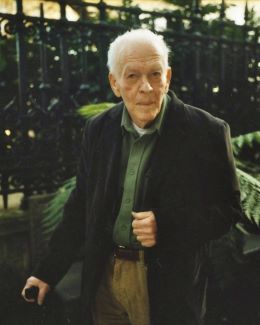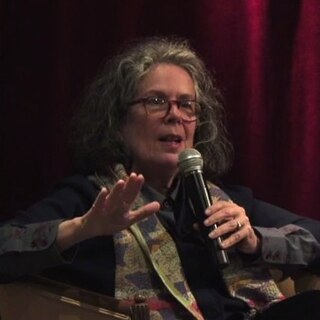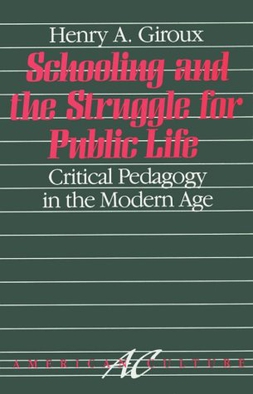
Gene Sharp was an American political scientist. He was the founder of the Albert Einstein Institution, a non-profit organization dedicated to advancing the study of nonviolent action, and professor of political science at the University of Massachusetts Dartmouth. He was known for his extensive writings on nonviolent struggle, which have influenced numerous anti-government resistance movements around the world.

Chantal Mouffe is a Belgian political theorist, formerly teaching at University of Westminster.

The Communist Party of Chile is a communist party in Chile. It was founded in 1912 as the Socialist Workers' Party and adopted its current name in 1922. The party established a youth wing, the Communist Youth of Chile, in 1932.

Kristin Ross is a professor emeritus of comparative literature at New York University. She is primarily known for her work on French literature and culture of the 19th, 20th, and 21st centuries.
Chavismo, also known in English as Chavism or Chavezism, is a left-wing populist political ideology based on the ideas, programs and government style associated with the Venezuelan President between 1999 and 2013 Hugo Chávez that combines elements of democratic socialism, socialist patriotism, Bolivarianism, and Latin American integration. Supporters of Hugo Chávez and Chavismo are known as Chavistas.
Radical democracy is a type of democracy that advocates the radical extension of equality and liberty. Radical democracy is concerned with a radical extension of equality and freedom, following the idea that democracy is an unfinished, inclusive, continuous and reflexive process.
Marcel Granier Haydon is a Venezuelan businessperson. He is the President and CEO of Empresas 1BC and the General Director of Radio Caracas Televisión (RCTV), which until becoming a cable TV-channel on May 27, 2007, was the most watched television channel in Venezuela.
Popular democracy is a notion of direct democracy based on referendums and other devices of empowerment and concretization of popular will. The concept evolved out of the political philosophy of populism, as a fully democratic version of this popular empowerment ideology, but since it has become independent of it, and some even discuss if they are antagonistic or unrelated now. Though the expression has been used since the 19th century and may be applied to English Civil War politics, at least the notion is deemed recent and has only recently been fully developed.

James Miller is an American writer and academic. He is known for writing about Michel Foucault, philosophy as a way of life, social movements, popular culture, intellectual history, eighteenth century to the present; radical social theory and history of political philosophy. He currently teaches at The New School.

Ángel Omar Vivas Perdomo is a Venezuelan Brigadier General. He has made himself known as an outspoken opponent of the politicization of the Venezuelan Armed Forces, by going to the supreme court to challenge the introduction of a war cry originally created by Fidel Castro, as the motto for the military in Venezuela. He was arrested, prosecuted, and on 1 March 2012, sentenced to 4 months and 15 days in jail for having challenged the motto in court. On 7 April 2017, he was arrested again during a SEBIN operation that tricked him into helping a young man that hit his car into the front door of his house, three years after a detention order was published during the 2014 Venezuelan protests.
Post-Marxism is a perspective in critical social theory which radically reinterprets Marxism, countering its association with economism, historical determinism, anti-humanism, and class reductionism, whilst remaining committed to the construction of socialism. Most notably, Post-Marxists are anti-essentialist, rejecting the primacy of class struggle, and instead focus on building radical democracy. Post-Marxism can be considered a synthesis of post-structuralist frameworks and neo-Marxist analysis, in response to the decline of the New Left after the protests of 1968.

ROAR Magazine was an independent publication that described itself as a “journal of the radical imagination.” Its stated aim was to “provide grassroots perspectives from the front-lines of the global struggle for real democracy.”
The New Left was a broad political movement that emerged from the counterculture of the 1960s and continued through the 1970s. It consisted of activists in the Western world who campaigned for a broad range of social issues such as feminism, gay rights, drug policy reforms, Statism, Neo-Marxism and the rejection of traditional family values, social order, and gender roles. The New Left differs from the traditional left in that it tended to acknowledge the struggle for various forms of social justice, whereas previous movements prioritized explicitly economic goals. However, many have used the term "New Left" to describe an evolution, continuation, and revitalization of traditional leftist goals.

Regressive left, also referred to as regressive liberals or regressive leftists, is a pejorative term to describe by its proponents a branch of left-wing politics that is accused of being accepting of, or sympathetic to, views that conflict with liberal principles, particularly by tolerating Islamism and other authoritarian positions, like promoting censorship. Among those who have used the term are the British political activist Maajid Nawaz, American political talk-show hosts Bill Maher and Dave Rubin, and New Atheist writers, such as Sam Harris and Richard Dawkins.
George Ciccariello-Maher, also known as Geo Maher, is an American political scientist who was an associate professor of politics and global studies at Drexel University.

Democracy in Chains: The Deep History of the Radical Right's Stealth Plan for America is a 2017 nonfiction book by Nancy MacLean published by Viking Press. MacLean critically examines public choice economics, the philosophy of economist James M. Buchanan at George Mason University, which became a significant influence on the libertarian movement and the Republican Party, and formed the foundation for the political activities of the Koch brothers in the U.S.
Maher is a surname. It can be derived from the Irish surname Ó Meachair, but is also found in Arabic ("ماهر").

Schooling and the Struggle for Public Life is a nonfiction book about critical pedagogy by Henry Giroux. In the book Giroux analyzes and critiques various concepts of pedagogy, arguing that schools should not be subservient to the existing power structure but should instead be sites of struggle and exist in solidarity with the oppressed. He adopts the framework of citizenship education, defining citizenship as the struggle for empowerment.

A World Without Police is a book written by historian and political theorist Geo Maher discussing police abolition and what society may look like with a transition from traditional law enforcement agencies to community-based policing.











